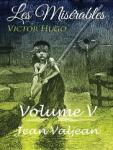Book 9 - Supreme Shadow, Supreme Dawn
Chapter 1 - Pity For The Unhappy, But Indulgence For The Happy
It is a terrible thing to be happy! How content one is! How all-sufficient one finds it! How, being in possession of the false object of life, happiness, one forgets the true object, duty!
Let us say, however, that the reader would do wrong were he to blame Marius.
Marius, as we have explained, before his marriage, had put no questions to M. Fauchelevent, and, since that time, he had feared to put any to Jean Valjean. He had regretted the promise into which he had allowed himself to be drawn. He had often said to himself that he had done wrong in making that concession to despair. He had confined himself to gradually estranging Jean Valjean from his house and to effacing him, as much as possible, from Cosette's mind. He had, in a manner, always placed himself between Cosette and Jean Valjean, sure that, in this way, she would not perceive nor think of the latter. It was more than effacement, it was an eclipse.
Marius did what he considered necessary and just. He thought that he had serious reasons which the reader has already seen, and others which will be seen later on, for getting rid of Jean Valjean without harshness, but without weakness.
Chance having ordained that he should encounter, in a case which he had argued, a former employee of the Laffitte establishment, he had acquired mysterious information, without seeking it, which he had not been able, it is true, to probe, out of respect for the secret which he had promised to guard, and out of consideration for Jean Valjean's perilous position. He believed at that moment that he had a grave duty to perform: the restitution of the six hundred thousand francs to some one whom he sought with all possible discretion. In the meanwhile, he abstained from touching that money.
As for Cosette, she had not been initiated into any of these secrets; but it would be harsh to condemn her also.
There existed between Marius and her an all-powerful magnetism, which caused her to do, instinctively and almost mechanically, what Marius wished. She was conscious of Marius' will in the direction of "Monsieur Jean," she conformed to it. Her husband had not been obliged to say anything to her; she yielded to the vague but clear pressure of his tacit intentions, and obeyed blindly. Her obedience in this instance consisted in not remembering what Marius forgot. She was not obliged to make any effort to accomplish this. Without her knowing why herself, and without his having any cause to accuse her of it, her soul had become so wholly her husband's that that which was shrouded in gloom in Marius' mind became overcast in hers.
Let us not go too far, however; in what concerns Jean Valjean, this forgetfulness and obliteration were merely superficial. She was rather heedless than forgetful. At bottom, she was sincerely attached to the man whom she had so long called her father; but she loved her husband still more dearly. This was what had somewhat disturbed the balance of her heart, which leaned to one side only.
It sometimes happened that Cosette spoke of Jean Valjean and expressed her surprise. Then Marius calmed her: "He is absent, I think. Did not he say that he was setting out on a journey?"--"That is true," thought Cosette. "He had a habit of disappearing in this fashion. But not for so long." Two or three times she despatched Nicolette to inquire in the Rue de l'Homme Arme whether M. Jean had returned from his journey. Jean Valjean caused the answer "no" to be given.
Cosette asked nothing more, since she had but one need on earth, Marius.
Let us also say that, on their side, Cosette and Marius had also been absent. They had been to Vernon. Marius had taken Cosette to his father's grave.
Marius gradually won Cosette away from Jean Valjean. Cosette allowed it.
Moreover that which is called, far too harshly in certain cases, the ingratitude of children, is not always a thing so deserving of reproach as it is supposed. It is the ingratitude of nature. Nature, as we have elsewhere said, "looks before her." Nature divides living beings into those who are arriving and those who are departing. Those who are departing are turned towards the shadows, those who are arriving towards the light. Hence a gulf which is fatal on the part of the old, and involuntary on the part of the young. This breach, at first insensible, increases slowly, like all separations of branches. The boughs, without becoming detached from the trunk, grow away from it. It is no fault of theirs. Youth goes where there is joy, festivals, vivid lights, love. Old age goes towards the end. They do not lose sight of each other, but there is no longer a close connection. Young people feel the cooling off of life; old people, that of the tomb. Let us not blame these poor children.
